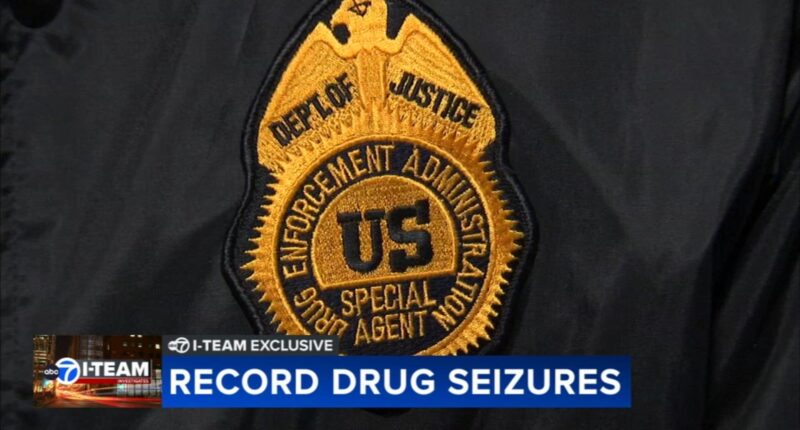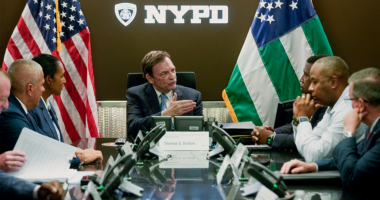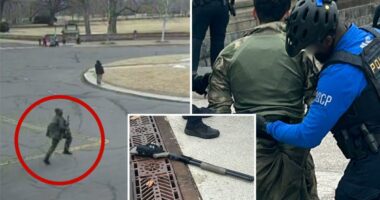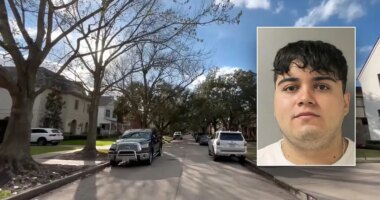Share this @internewscast.com
CHICAGO (WLS) — The ABC7 I-Team spoke exclusively with Chicago’s top drug enforcer, touting progress after several major fentanyl busts.
Sheila Lyons, the Special Agent in Charge of the U.S. Drug Enforcement Administration’s Chicago field office, recently had an open discussion with the I-Team. She shared insights about the future direction of her agency, highlighted significant drug seizures over the last six months, and introduced new strategies her agents are using to tackle the impact of Mexican cartels in Chicago.
ABC7 Chicago is now streaming 24/7. Click here to watch
Vehicles engulfed in flames show the violence perpetrated by vicious Mexican cartels motivated only by money, according to federal authorities.
“They have no regard for human life. They don’t care who dies, gets poisoned, or overdoses,” Lyons explained. “As long as there’s demand, they’ll keep producing, manufacturing, and distributing drugs.”
That potential for bloodshed is spilling across the border and into Chicago communities.
“I believe that these drug trafficking organizations, the cartels that support them, and all the networks they’re involved with, are closely linked to the violence,” Lyons added.
Lyons said in the seemingly never-ending illicit drug crisis, some progress has been made, saying 1.6 million deadly fentanyl pills were seized in the first half of this year in the Midwest region. That’s more than double the amount of last year and more than the last three years combined.
“They don’t have to follow any rules and every idea they come up with,” Lyons said. “They don’t have to worry about budget and they don’t have to worry about the law. They don’t care. So everything’s on the table every time, in terms of moving product from point A to point B.”
Speaking frankly with the I-Team, Lyons described her administration as small but mighty, and one that has been targeted by the Justice Department for a merger with the Bureau of Alcohol Tobacco and Firearms.
“Well, nothing is insurmountable,” Lyons said. “But in terms of merging federal agencies for the betterment of productivity and funding… that’s something that is being socialized at the Department of Justice, and so I have to leave it to those who know a lot more about it than me.”
For now, the battle against cartel influence rages on in Chicago…
A plea deal is expected Friday from Ovidio Guzman Lopez, a former Mexican drug lord of the Sinaloa Cartel and El Chapo’s son.
The Midwest region is a major hub for cartels distributing drugs across the country, according to the DEA.
Eight Mexican cartels have a new designation from the federal government, possibly allowing the DEA to do more to take them down.
“It broadens the amount of information that we will now be able to share and pull in for actionable items throughout the relationships that we have in our federal government entities,” Lyons said.
However, as DEA agents continue their training for battle on Chicago streets, the cocktail of pharmaceuticals flooding the market gets murkier.
“In Chicago right now, the drug threat continues to be of poly-drug origin,” Lyons said.
It’s a complicated combinations of drugs that advocates on the ground simply refer to as “dope” with insatiable demand.
“Manufacturers of those drugs, they’ll just pivot to a different variation or formulation of those drugs, often something that is easier to smuggle, easier to manufacture, and is a little bit more potent,” said John Werning, executive director of Chicago Recovery Alliance. “So if this sounds familiar, it’s because it’s kind of how we got fentanyl in this country.”
Werning’s team at the Chicago Recovery Alliance distributes drug testing strips and clean needles focusing on harm reduction in the community. He said the vast amounts of federal dollars spent on the war on drugs can be better utilized.
“My argument would be, why don’t we put trillions of dollars into programs like treatment, harm reduction, housing access, medical access, which we know have evidence through evidence actually do reduce the demand for those drugs, or at least impact it in a better way,” he said.
Werning said the demand for drugs in Chicago is not abating, and Lyons says with it comes a rise of cocaine and methamphetamine in the region and new, looming dangers.
“There are always emerging drug threats,” Lyons said. “So yes, we are seeing carfentanil. We’re seeing nitazines. We’re seeing xylazine. It’s called a zombie drug. These are serious, dangerous drugs that are emerging throughout the country, and we are seeing them here in the Chicago field division.”
Major busts have deterred and disrupted the dangers but not have dissolved demand.
“These are vicious, greedy people who do not care about public safety or the human condition,” Lyons said. “They don’t care about people. They care about profit.”
Fatal overdose numbers are still high, but they are trending down, and it is something the DEA attributes to education efforts.
Lyons confirmed to the I-Team that DEA agents are assisting with federal immigration actions per orders from the president, but said their core mission has not been affected and that the administration has been just as productive as the last 10 years.
Copyright © 2025 WLS-TV. All Rights Reserved.

















